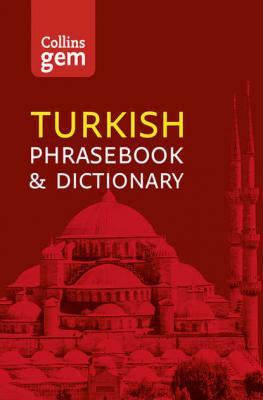Collins Gem. Collins Dictionaries
Чтение книги онлайн.
Читать онлайн книгу Collins Gem - Collins Dictionaries страница 3
 Dentist
Dentist
| English – Turkish | A – C |
| D – F | |
| G – I | |
| J – L | |
| M – O | |
| P – R | |
| S – U | |
| V – Z | |
| Turkish – English | A – Ç |
| D – F | |
| G – İ | |
| J – L | |
| M – Ö | |
| P – R | |
| S – Ü | |
| V – Z |
Turkish uses the same script as English, with one or two unfamiliar letters. Generally it is straightforward to pronounce. You read the words as they are spelled. Pronounce every single letter in the word.
The following letters sound roughly the same as in English: b d f g h k l m n p r s t and z but note that r is always rolled and always pronounced, as in Italian or Russian, and h is always a sound in its own right, e.g. mithat (meet-hat, not mee-that). In the pronunciation guide we use hyphens for clarity. Where double letters occur, both letters are pronounced, e.g. dikkat (deek-kat, not dee-kat), piller (peel-ler, not pee-ler).
| Letters to watch | Represented by | |
| a | pronounced as in car (never came or have) | a |
| e | pronounced as in pet (never Pete) | e |
| i | pronounced as in litre (never light) | ee |
| o | pronounced as in not (never note) | o |
| u | pronounced as in blue (never but or cute) | oo |
| c | pronounced like ‘j’ in jam (never cap or pace) | dj |
| g | pronounced as in lag (never large) | g |
| j | pronounced like the ‘s’ in pleasure (never jam) | zh |
| r | always pronounce the letter ‘r’ even when it is at the end of the word. | r |
| s | pronounced as in sag (never basil) | s |
| Unfamiliar letters | Pronunciation | |
| ı | pronounced like the second ‘e’ in letter, speaker | uh |
| ö | pronounced like the ‘i’ in bird, dirt | ur |
| ü | pronounced like the ‘u’ in German Lübeck, French musée, English nude and Tewkesbury | ew |
| ç | pronounced ‘ch’ as in chop, church | ch |
| ş | pronounced ‘sh’ as in shop, sheep, ship | sh |
| ğ | silent g: has no sound, but doubles the length of the previous vowel |
Stress
The stress is generally on the last syllable of the word, especially the question suffix at the end of the sentence.
1 When you visit a Turkish house, the host will say ‘Hoşgeldiniz!’ (welcome). You should reply, ‘Hoşbulduk’.
2 Turks are naturally inquisitive about visitors to their country and are keen to hear your impressions of Turkey. Shortly after meeting, you may be asked where you are from, as well as more personal questions about your family life. They may also invite you for further discussion over tea or Turkish coffee.
3 It is totally normal for women or men to kiss each other on the cheeks and hug. It is also normal for people to walk arm in arm or with their arm around someone, regardless of gender. It is a natural expression of affection, along with often touching a person’s hand or shoulder during a conversation.
4